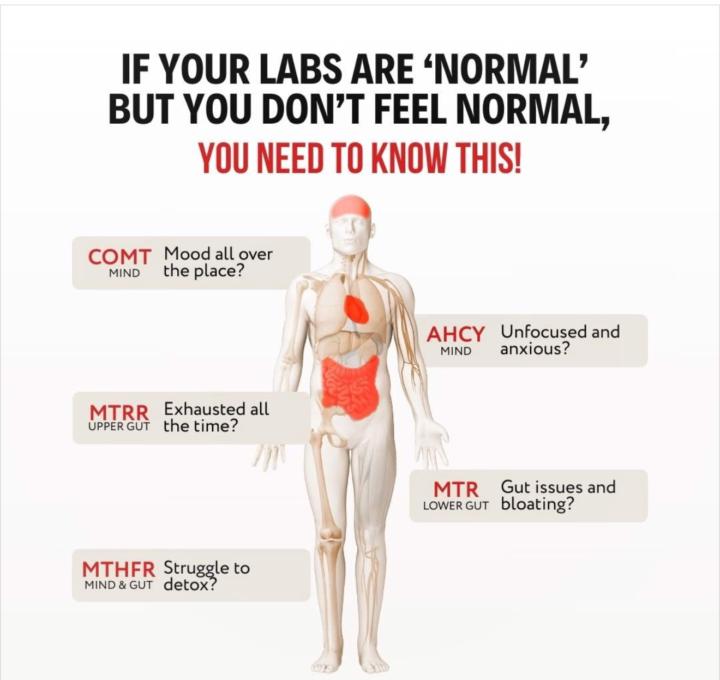🔋 Why Weight Loss Plateaus Happen (Think of Your Phone Battery)
Ever notice how your phone acts when the battery gets low? - It shuts down non-essential apps - Dims the brightness - Switches into low-power mode ⚡ That’s exactly what your body does during weight loss. 📉 The Calorie Deficit Example - At first, your body burns 2000 calories/day. - You eat 1700 calories/day → ✅ you’re in a deficit → weight drops. - But then your body adapts and says: “We’re running low on fuel—conserve energy.” - Now it only burns 1700 calories/day → ❌ no more deficit → plateau. This is called metabolic adaptation (your body’s “low-power mode”). 🔑 How to Break Through Instead of cutting calories more, think about recharging your battery: - 🍳 Eat more (nutrient-dense foods, especially protein) - 💧 Drink more (hydration keeps metabolism running) - 🏋️ Move more & build muscle (muscle = higher baseline calorie burn) Once you add muscle, your calorie needs go up. Eating 2000/day might still leave you in a deficit—but this time with a stronger, faster “processor.” ⚡ Bottom Line Plateaus aren’t failures. They’re your body’s way of protecting itself, just like your phone in low-battery mode. The fix isn’t starving yourself further—it’s recharging, rebuilding, and raising your metabolic capacity.

Can saunas release natural hgh?
Can a 15-minute steam make your growth hormone spike? Yes — but with caveats. Research suggests that a short sauna session (e.g. ~15 min at ~70–90 °C) can transiently increase growth hormone (GH) levels — in one study, rising from ~2 to ~5 µg/L in young men.  However, this increase is temporary, depends heavily on age, temperature, duration, and recovery cycles, and returns to baseline within a few hours.  The proposed mechanism — heat stress triggering heat shock proteins, hypothalamic signaling, and GH release — is plausible and partially supported, but not definitively proven in humans in all circumstances. If optimized (higher heat, repeated exposure, alternating with cooling), the GH boost might be larger — but evidence for dramatic or long-term hormonal effects is limited. GH does help with tissue repair, muscle retention, bone health, and body composition, but whether sauna-induced GH surges deliver meaningful benefit beyond traditional methods (training, diet, sleep) is still an open question. Using a sauna for recovery, relaxation, or performance support is reasonable — and occasional GH boosts are a potential bonus. But this isn’t a magic switch for hormones. Treat it as one helpful tool among many. Full Article: https://nordvikoutdoors.com/blogs/news/sauna-growth-hormone-study

🧬 If Your Labs Are “Normal” But You Don’t Feel Normal… Read This!
Sometimes standard lab panels don’t tell the whole story. Genes like COMT, MTHFR, MTR, MTRR, and AHCY can influence how your body and brain actually function — impacting mood, focus, energy, gut health, and even detox ability. 🔎 This chart breaks it down: - COMT (Mind): Mood swings or emotional imbalance? - AHCY (Mind): Feeling unfocused or anxious? - MTRR (Upper Gut): Constant exhaustion? - MTR (Lower Gut): Bloating and gut issues? - MTHFR (Mind & Gut): Trouble detoxing? 👉 Question for the group: - Has anyone here had this genetic panel done? - If so, what was your experience? - What kind of follow-up steps, protocols, or support did you find most useful after testing? Would love to get some recommendations and real-world feedback from those who’ve gone through it. 💬 Drop your thoughts below — your input could really help someone else navigate this!

🚨 20% Off PerfectAmino + Free Shipping Hook-Up 🚨
I’ve been using PerfectAmino alongside my protein routine, and it’s been a game-changer for recovery, energy, and getting the most out of every gram of protein. Here’s the deal: - Use this link 👉 https://prz.io/3gznZaBUe - You’ll get 20% off your order. - If you use my code, I get a $20 credit — and when that hits, I’ll turn around and give you free shipping on your next order. Basically: you save now, I save later, and then I give it back to you. 💥 What goes around, comes around. 💥 If you’ve been on the fence about trying PerfectAmino, now’s the time to grab it cheaper — and it helps the community keep rolling too.

Hormones and weightloss
The Importance of Balanced Hormones in Weight Loss When people talk about weight loss, they often focus on calories, exercise, or diet. But your hormonal balance plays a central role in how your body manages energy, stores fat, and builds lean tissue. For both men and women, hormones act like control switches that can either accelerate or stall progress. Key Hormones and Biomarkers That Affect Weight Testosterone (Men & Women) - In men, testosterone naturally declines with age. By the mid-40s, levels can drop enough to affect energy, muscle preservation, and fat distribution. Low testosterone is linked with increased visceral fat and insulin resistance. - Obesity itself can lower total testosterone by suppressing SHBG (sex hormone–binding globulin), making free testosterone more relevant for interpretation. - In women, testosterone is present in smaller amounts but still influences lean muscle maintenance and energy. Estradiol (Women) - Estradiol drops significantly during perimenopause and menopause, which shifts fat distribution toward the abdomen and increases metabolic risk. - Hot flashes, sleep disruption, and mood changes compound the challenges of weight control. Thyroid Hormones (TSH, Free T4, Free T3) - The thyroid regulates resting metabolic rate. Even mild hypothyroidism can slow metabolism, cause fatigue, and contribute to weight gain. - With aging, FT3 often trends lower and TSH trends higher, meaning “normal” labs must be read in context, not in isolation. Insulin and Glucose Control - Elevated fasting insulin or an increased HOMA-IR score are early signs of insulin resistance, which pushes energy toward fat storage. - HbA1c shows longer-term glucose control, but fasting insulin usually shows problems first. Cortisol (Stress Hormone) - Chronically elevated cortisol promotes fat deposition in the abdominal area and can disrupt sleep, appetite regulation, and recovery. - Stress management and proper sleep are key in regulating this axis.
9
0
1-9 of 9

skool.com/bio-health-peptides-proteins-9123
Learn, connect, and access group-buy opportunities with real researchers. Join today.
Powered by






